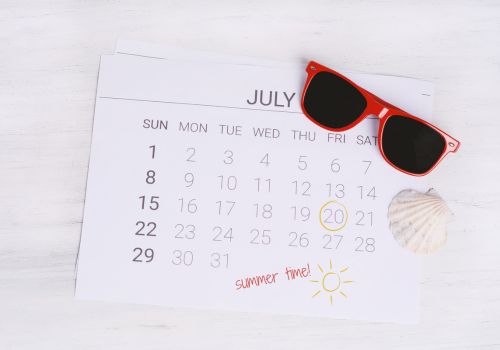With summer vacation on the horizon, kids of all ages are getting ready to enjoy some time away from school. Parents, on the other hand, might be more apprehensive about the break and the impact it will have on their child’s progress.
As a parent, you want to make sure your children spend their summer vacation constructively. Maintaining structure is important, even when school isn’t in session. Here’s what you can do to create a realistic summer routine for kids.
Why Is a Summer Routine Important?
A regular routine gives kids a sense of security and teaches basic life skills, like self-control and time management. When kids’ routines are shaken up, they may get stressed or anxious. This can lead to behavioral issues that cause them to act out in school come fall when they have to switch back to a more tightly controlled schedule.
After an unstructured summer, kids may also lose some executive management skills. These are the cognitive skills that help people set goals and then strategize, adapt, and persist to meet those goals.
How Parents Can Help Kids Create Structure This Summer
Kids are often tempted to ditch all routines as soon as the final school bell rings. While it’s important to let students decompress after a busy year, parents also need to help them stay on track by encouraging a routine. Here are some actionable steps you can take to maintain structure in the home.
1. Stick to Regular Sleeping and Eating Times
Maintain a clear schedule when it comes to bedtime and mealtime. If you can, stick to the usual times your child sleeps, wakes up, and eats during the school year. The continuity and familiarity keep kids feeling secure and stable during seasonal transitions—and that means the return to school in the fall will be less of a shock.
2. Create a Chore Chart
Kids don’t have duties like studying for tests or completing homework assignments when school is out of session. Instead, they can take on other tasks around the house. Create a schedule for household chores, from making the bed to feeding the family pet. Assigning age-appropriate chores helps maintain accountability.
3. Set a Schedule for Self-Care
Don’t just give your kids chores to complete. Encourage them to take care of their minds and bodies by creating a routine for self-care tasks. These could include basic personal hygiene, like brushing their teeth, plus exercise and meditation.
4. Make Time for Relaxation
Sticking to a schedule doesn’t mean it has to be all work and no fun. Make sure you’re carving out hours for relaxation, including family time. You want to enjoy this opportunity to spend time together! Summer can be the perfect time to pick up a new creative hobby, explore nature, or try new foods together.
How Can Parents Help Kids Maintain a Summer Routine?
It starts with getting organized. Create a visual schedule for your child, so you can track their activities together. You could put together a sticker chart, for example. Posting the chart somewhere visible and accessible keeps kids on track to complete tasks and work toward a reward, like going out for ice cream or extra video game or TV time.
Finally, try setting some summer goals for kids. Smaller actions, like building up to exercising five days per week, can lead to a larger objective, like trying out for a school sports team in the fall.
That said, keep your child’s unique needs in mind. A summer schedule for teens won’t be the same as summer schedules for kids under 10. Teens can take on bigger chores, like yard work and helping with meal planning, and earn bigger rewards, like extra time with the car. Additionally, teens might have to learn to balance unstructured time with a summer job or academic program.
You don’t just want your child to sustain over the summer months. Ideally, they’ll come away from summer break even stronger and more focused than when they went in.





